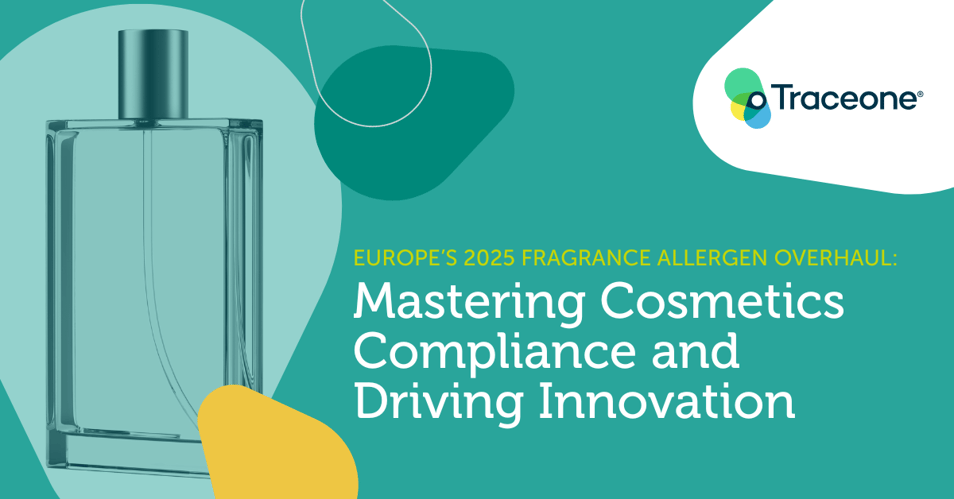
- Home
- PLM & Compliance Blog
- Europe’s 2025 Fragrance Allergen Overhaul: Mastering Cosmetics Compliance and Driving Innovation
Europe’s 2025 Fragrance Allergen Overhaul: Mastering Cosmetics Compliance and Driving Innovation
|
PLM
|
Cosmetics
Posted By:
Angelica Guoli
Fragrance allergens have become a central concern in the European cosmetics industry as regulators tighten rules on consumer safety and product transparency. In 2025, the updated requirements of Regulation 2023/1545 are more relevant than ever, prompting brands to revisit their formulations, rethink labels, and prepare for potential future amendments. Meanwhile, the growing consumer demand for natural, clean, and fully disclosed products adds a layer of complexity—and opportunity—to this evolving landscape.
Understanding Regulation 2023/1545
Regulation 2023/1545 clarifies and expands the list of allergenic substances that must be declared on product labels, especially those found in natural extracts. By the end of 2025, these requirements are fully operational, leaving brands little room for error in their ingredient disclosures. Companies must now ensure that their portfolios meet the new labeling standards and that packaging accommodates any additional information without confusing consumers.
Why the Regulation Matters
The move toward stricter oversight reflects heightened consumer awareness of skin sensitivities. Many buyers now seek reassurance that their preferred scents are both appealing and safe. While essential oils remain popular for their natural fragrance, they frequently contain allergenic molecules like limonene or linalool. Once these compounds exceed set concentration limits, formal disclosure on labels is mandatory.Tackling Complex Formulations
A common challenge arises when essential oils, by definition, reach 100% of a blend before additional compounds are factored in—potentially pushing a formula’s total above 100%. Conventional software often struggles with these calculations, but Trace One Devex PLM for Cosmetics handles “over 100%” scenarios seamlessly. This flexibility allows manufacturers to reflect their true ingredient usage and avoid cumbersome workarounds.
Turning Compliance into Competitive Advantage
Stricter regulations don’t just pose hurdles—they also present marketing opportunities. Surveys indicate that consumers increasingly link detailed labeling with ethical practices and trustworthiness. Brands that excel in transparent, compliant labeling can highlight these efforts to underscore their commitment to consumer well-being. Providing accessible product details, for example through QR codes linking to in-depth ingredient information, further cements brand credibility.
A Systematic Approach to Standing Out
Keeping pace with evolving regulations calls for effective coordination across all departments. Research and Development teams require accurate, real-time allergen data; Regulatory teams need robust records to satisfy labeling obligations; and Marketing teams must plan for design updates if new allergens are listed. A dedicated PLM platform—such as Trace One’s Devex PLM for Cosmetics—unites these functions. It centralizes ingredient tracking, labeling prompts, and regulatory updates, minimizing errors and speeding time to market.
Balancing Safety, Innovation, and Consumer Appeal
With Regulation 2023/1545 reshaping fragrance allergen management, 2025 finds the European cosmetics industry fully engaged in meeting its demands. From refining essential-oil-based formulas to leveraging modern PLM technology, brands that prioritize clarity in allergen disclosure can remain compliant and innovative. Fragrance will always be at the heart of personal care, and the careful handling of potential allergens is now integral to delivering the scents consumers love with the assurance of safety and transparency they expect.
